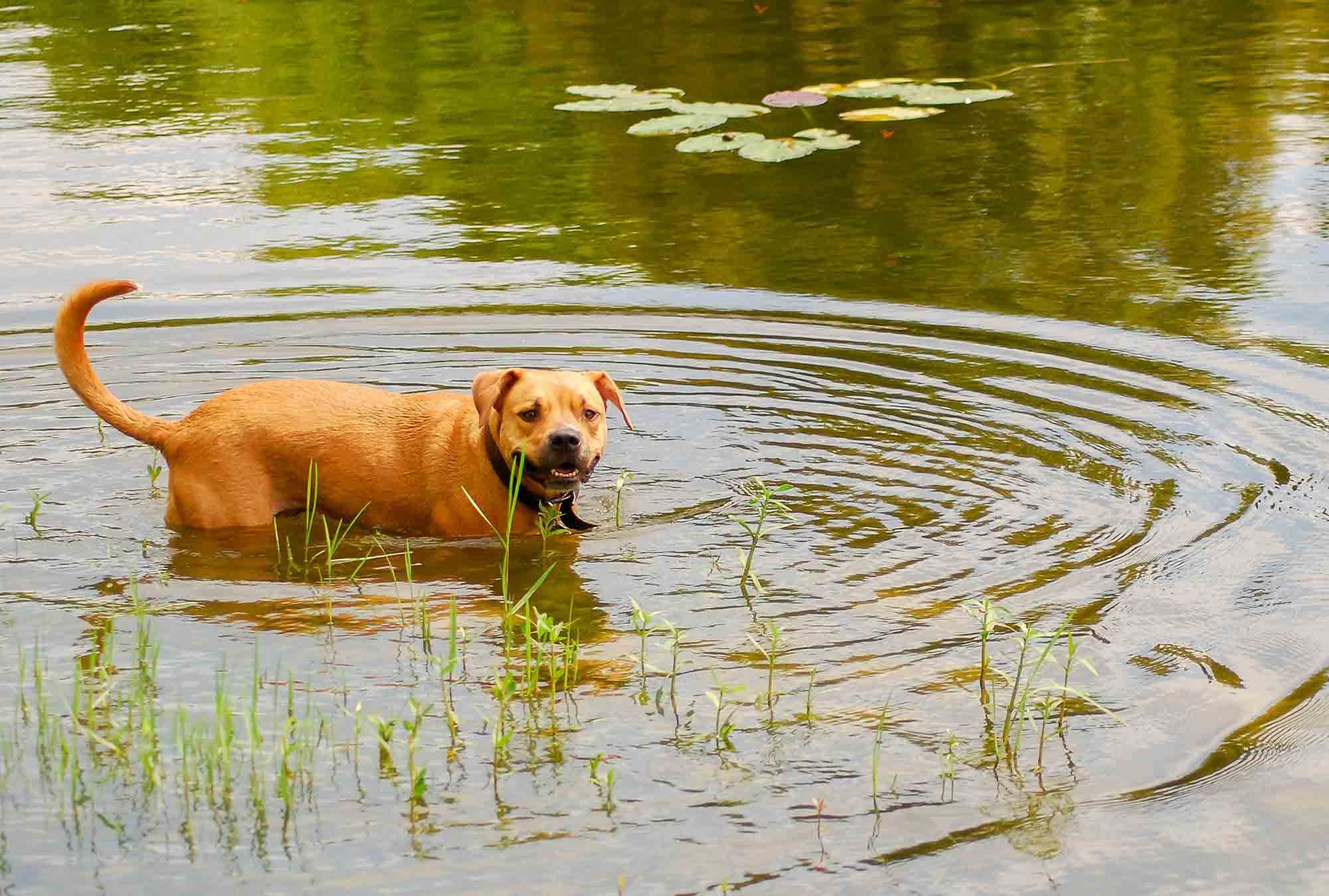Skin rashes
Prof Carvalho said: "Animals will drink from water if they are thirsty and it seems dogs are particularly affected because they seem to be attracted by the smell of the algae."
Blue-green algae are microscopic, but clump together in visible colonies up to a few millimetres in size that can rise to the surface and form thin wispy green blooms or thick, paint-like scums.
When it is ingested, it can cause damage to the liver or the nervous system in humans and animals.
People who have been swimming in or have swallowed algal scum can suffer from skin rashes, eye irritation, vomiting, diarrhoea, fever and muscle and joint pain but there is no evidence of long-term effects or death among people in the UK.
Prof Carvalho, who works at the Centre for Ecoology and Hydrology, has helped develop an app called Bloomin' Algae which allows users to submit images of the bloom and its location.
The information will be passed on to the Scottish Environment Protection Agency, so it can inform local authorities.
He said: "The app provides an early warning system and speeds up the process of local authorities or landowners putting up signs at sites where there is blue-green algae, to warn the public of the risks.
"It will also help us understand the drivers of growth of these algae, such as the impact of climate change."













Comment